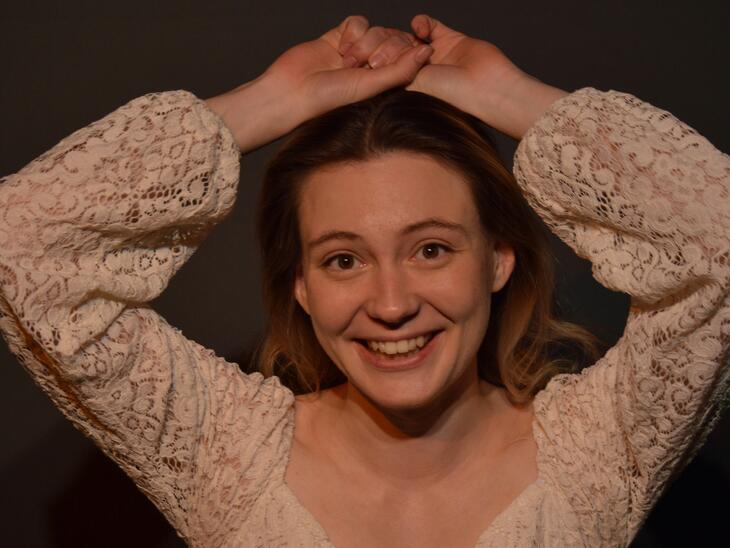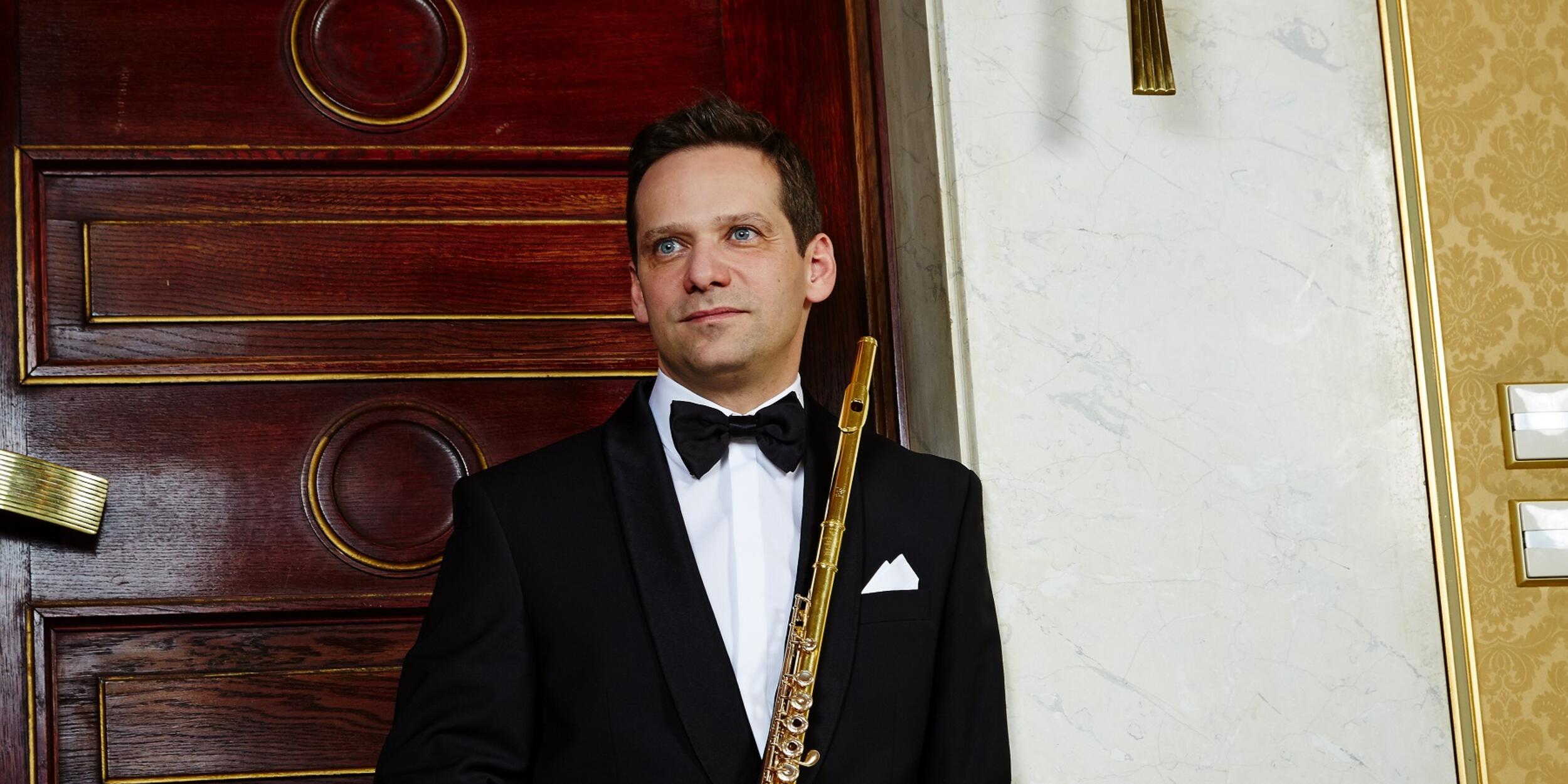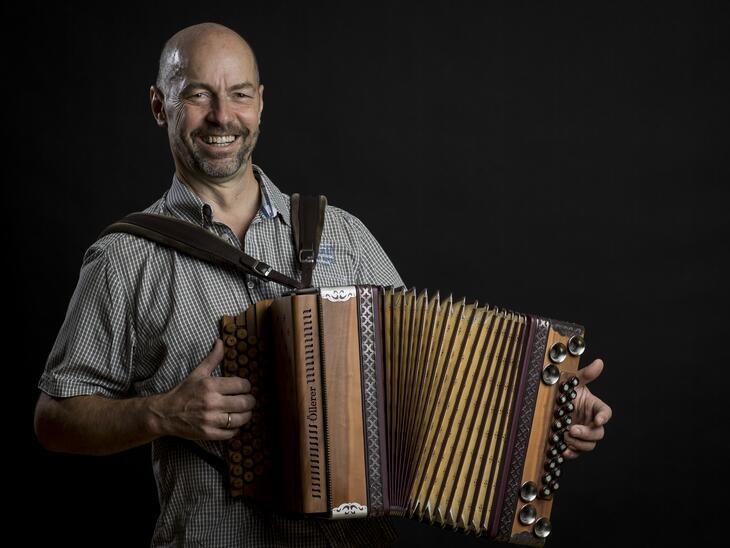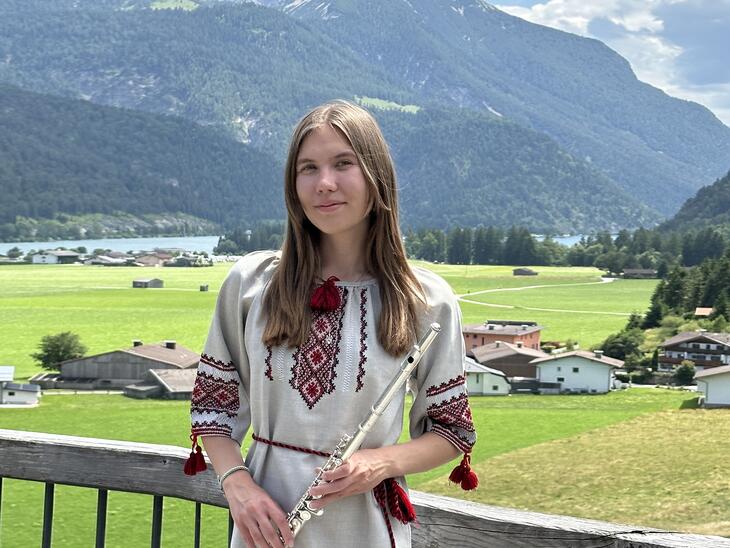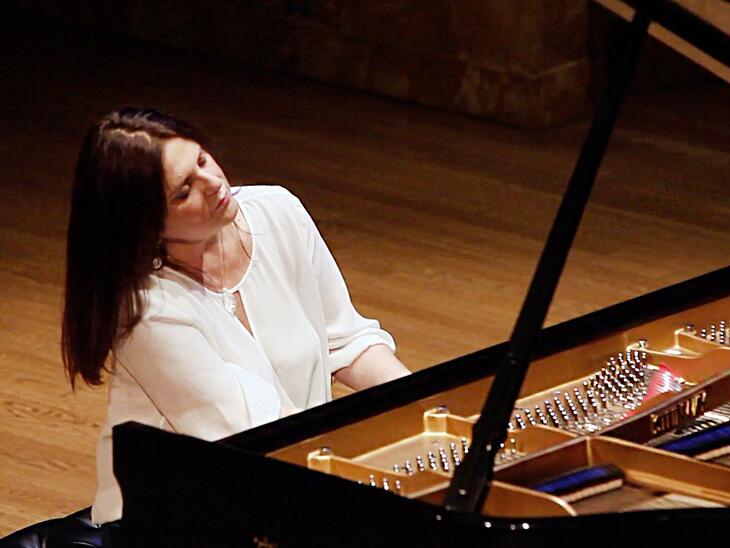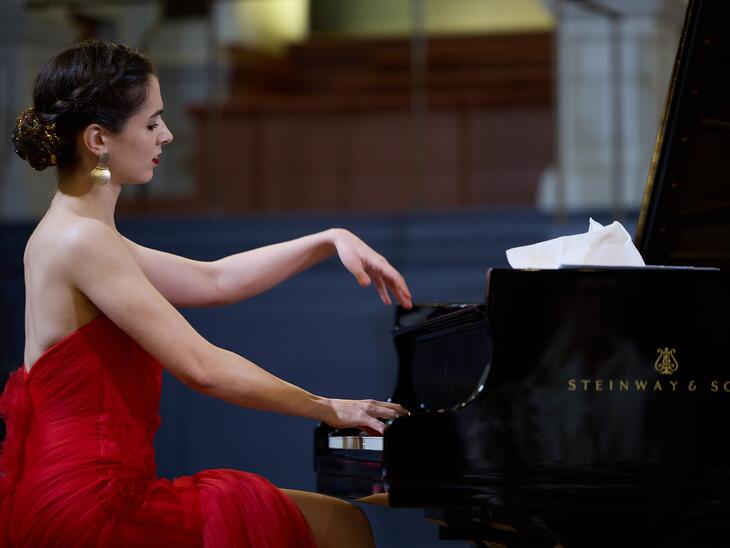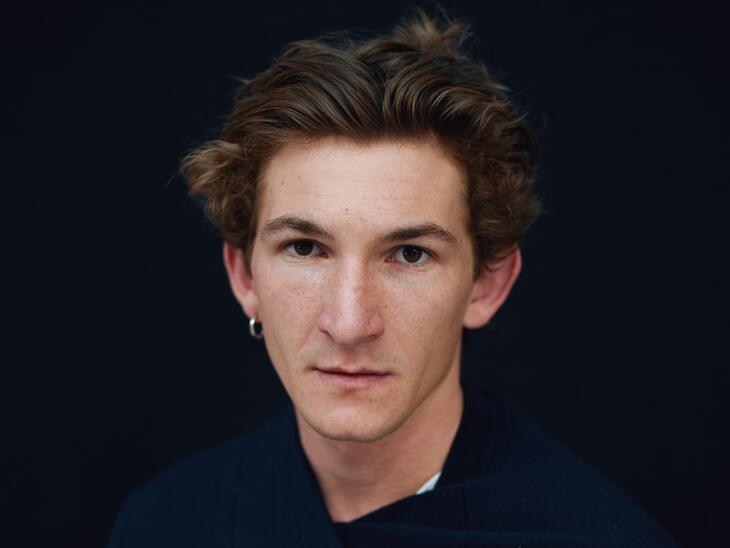What is the beauty of working with young people, of teaching?
Everything (laughs). It's a wonderful task to accompany young people in an important phase of their lives, to give them as much input as possible and to further develop skills. An incredible amount of personal and musical input comes back. You develop yourself in the process, which is important. It's about advancing your own subject and not getting stuck with the things you've been presented with at some point. I love doing that, and I think that's a prerequisite. In summary, I see the instrumental and especially the musical imprinting of young people as well as supporting and encouraging their enthusiasm as my main task.
You said that you learn a lot yourself. Do you observe a change in young people today compared to when you were a student?
Funnily enough, I was just talking to a student about this topic recently. When I think about how my student days were, … (laughs). We were certainly not always easy and some things I should perhaps have done differently. I studied in Salzburg with Michael Kofler and he wasn't much older than me. I miss the contradictoriness, the critical questioning among the young. Sometimes I actually wish for more constructive contradiction. Starting a discourse.
Are the students more well-behaved today?
Yes, I think so. They come out of school more well-behaved. But the enthusiasm is there. It's about being honest with yourself. How many hours can I put in, how much can I practice, what will get me ahead? That has remained unchanged.
Was it clear to you from the beginning where you wanted to go professionally?
Fortunately, yes. I went to the Villach Music School, as did my later professor Michael Kofler. He, however, a few years before me. He virtually showed me this path and was already my role model at that time. He studied in Vienna and became a solo flutist in Munich at a very young age. As far as I remember, it was already my wish at the age of 15 or 16 to play in an orchestra. That it then became exactly this position, I could neither foresee nor plan. I was well aware that it would be difficult, although I was already studying IGP (note: pedagogical training) at the same time. It was not a plan "B", both interested me. However, a career is also determined by luck. The right position has to be available at the right time. But what is luck? I recently read the definition of a professional golfer who said that the more he practiced, the more luck he had. I found this train of thought very beautiful.
Auditions for orchestras are important career steps, aren't they?
I was lucky enough to get into the Karajan Academy of the Berlin Philharmonic while I was still a student. The day before, I flunked out in the first round at the audition at the Munich Orchestra Academy. The next day, I won the audition in Berlin. That is the reality. A career doesn't have to be linear. It's important to take something away from negative experiences as well. If you don't go at all, you deprive yourself of a chance from the outset. The two years in Berlin under Claudio Abbado were a paradise for me. I came from the country as an amazed child. The impressions I gained there were great. Learning from the best - what more could you want? I was allowed to play under Kurt Masur and James Levine when I was young, for example.
The path is basically quite simple: You open the "Orchester" magazine - not yet digital at that time - and see where there is a position. Then you apply. Of course, it looks good on your résumé if you already have a few orchestral stations to show for it. The most difficult point for students is to be invited and to present themselves. Nowadays, there are more and more auditions to increase the number of people invited, but that's still the first big hurdle.
My next stop was the Neue Philharmonie Westfalen, I won the audition and so it went on. I looked for a new destination and this was Kassel. After failing the audition year, I moved on to the Dresdner Philharmonie audition, which I won again. One always looks for the next best position, so to speak. After Dresden, two years followed with the NDR Rundfunkphilharmonie Hannover. I was very happy in this orchestra. At some point I met Olivier Tardy, my colleague from the Berlin period, and he drew my attention to the position in Vienna. In all orchestras I met excellent musicians* and therefore I am very happy about these stations and experiences. Many orchestras now have their own "young academies". Karajan already had this vision 50 years ago. The academies of the orchestras must first and foremost offer great development opportunities for the students. Students must be able to learn and play. They need good pay to be able to live in the city, and students must be able to develop musically. The whole package is crucial.
What do you think is most important at the beginning of a professional career?
Seizing the opportunities that are offered. Investing as much as possible and not limiting yourself by determining too early what you don't want. You have to be aware that we have a lot of good flautists, but relatively few positions. Of these, only a few are top positions. If you don't go to the audition, you deprive yourself of the opportunity.
I was still studying in Salzburg when I was invited to audition for the Bayerischer Rundfunk. It was for a piccolo part that was not one of my favorites. When I arrived, a fellow candidate was playing a Vivaldi concerto. I heard it through the door and it was so beautiful that I didn't compete and went back home. I didn't think I could do it that way. Today I know that everyone sounds fantastic through the door and that one's perception can be deceiving. However, by not competing, I didn't have a chance at all. So not trying is not an option. This applies to competitions or entrance exams in the same way.
You yourself have successfully participated in several competitions. What is the significance of competitions for artists?
Competitions are fantastic per se, because good competitions offer possibilities and opportunities. There are usually many concerts and performance opportunities associated with them. I'm less comfortable with the shift of competitions to the online realm. I want to hear artists and their sound live. The best thing about competitions is that you learn new repertoire. There is a goal, you have to prepare and learn a certain repertoire. The path to the competition is perhaps more meaningful than the competition itself.
What changes has digitalization brought about in your view? And what significance do CD and radio recordings have for classical artists today?
Great careers for singers and instrumental soloists are still linked to recordings. Whether these will have to be available in physical form in the future is the big question. Recordings are still being produced, but rather to make them available for download. And there is also a trend back to vinyl for certain aspects and for the aficionados who still have a great stereo at home and want to revive these special worlds of sound. And then there are also countries like Japan, where the physical market is very important.
A lot has already changed in daily use. We don't have drives on our computers anymore, my students can't do much with CDs. The industry is setting the pace here. In addition, we have all learned a lot about technology through Corona. We can hold a Zoom meeting flawlessly, operate the camera, sound and lights, and teach our students online. Even during a tour in Japan, that would not have been possible before. Flexibility has increased, even though everything has its limits.
You also play chamber music. What is important to you in that?
The chamber music repertoire for flute is beautiful. We are neither violinists nor pianists, but we have a beautiful repertoire in different instrumentations. This has to be cultivated. During my studies I played in a great woodwind quintet. We won the prize of the German Music Council, second place in the ARD competition and played together a lot for a few seasons. Today we are active in different orchestras, but maybe we will revive our quintet in retirement! I enjoy playing chamber music very much and also "poach" in the violin repertoire.
I have a very good agency in Japan, as the Japanese market is a very important one for us flutists. Every year I play at least two tours in Japan with different instrumentation. In Vienna I play together with my wife. The beauty of my job is that I can draw from the full range of musical possibilities. I have the greatest opera and symphony repertoire and can also let off steam in chamber music. These experiences subsequently flow into my teaching. It's essential for me to actively live music to see where musical trends are going. We just premiered Don Giovanni in Vienna, and in the summer Currentzis turned Don Giovanni in Salzburg completely upside down. The differences could not be clearer. Of course, the question arises: what is my view of Mozart? What am I teaching, where is the spirit going? What is my opinion and is it scientifically based?
You took part in the "Mozart 100 trail run" in Salzburg this summer and run marathons. What meaning does sport have for you?
I was very sporty as a child, but then I smoked too much. I put an end to that overnight. Today, sports are an important balance for me. Sports make me more efficient and resilient. I also run the Vienna City Marathon and do some runs with friends. In summer I ride a racing bike and my family hobby is horseback riding. My wife and I have three children and all five of us ride. It's all about experiencing nature and yet there's a lot to learn and work on. I can incorporate a lot of that into playing the flute. Aspects of riding, such as body awareness and tension, I can transfer one-to-one into music-making.
Although you live in Vienna, your job often takes you to Salzburg. Is there a particularly fond memory of your student days in Salzburg?
I have fond memories of special places: for example, my lessons took place above the Marionette Theater, a place that had something almost enchanted about it. I lived on Wolf-Dietrich-Strasse, and St. Sebastian's Cemetery and Linzer Gasse are beautiful places that I still return to today. For me, it's a reference to Leopold Mozart, whose grave I could look at from the balcony of my shared apartment.
Is there anything else you would like to leave us with?
I admire and encourage anyone and everyone who wants to study music and make music and art their life's meaning. The arts in an increasingly technical and economic world are enormously valuable. We are here for the next generation and I really see myself as a "service unit". I want to encourage the young artists to finish their studies and continue.
